SIA New Member Profile: Riley
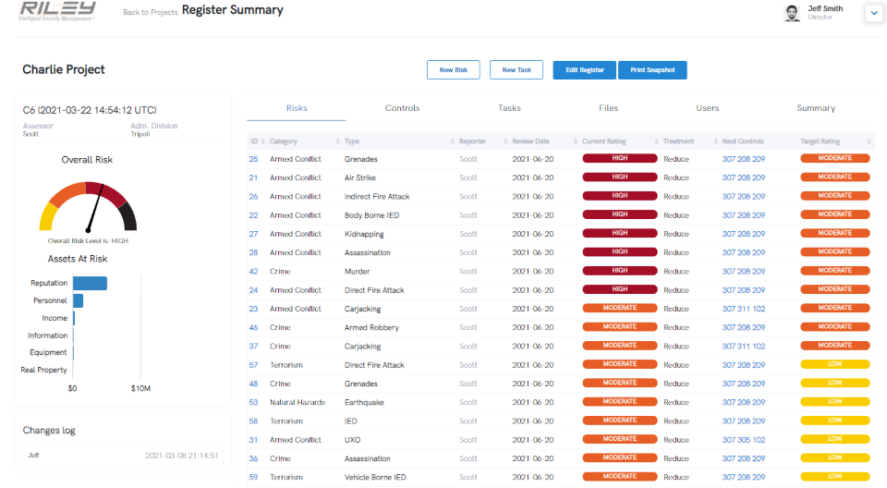
New Security Industry Association (SIA) member Riley provides a global security risk management system that streamlines security risk management policy implementation, including duty of care compliance. The company is headquartered in Arlington, Virginia, with an additional office in St. Augustine, Florida.
SIA spoke with Jake Allen, president and CEO of Riley, about the company, the security industry and working with SIA.
Tell us the story of your company.
JA: Riley is a veteran-owned small business that Phil Dwyer and I co-founded in 2011. The business got its start as a staffing firm providing security and other operations support resources to clients who had operations or programs in Iraq, Afghanistan and other high-threat markets. In 2013, we added a security consulting and advisory practice to support clients across the Middle East and Africa. We quickly realized that in order to provide a consistently high level of service to all clients, we needed to standardize our methods and improve collaboration with cross-functional and geographically dispersed teams, which led to the development of the cloud-based security risk management system that has become our featured product. Today, Riley is an intelligent security risk management platform that provides structure, organization and workflow to security departments that are resource constrained yet challenged with managing safety and security risk at scale across multiple geographies.
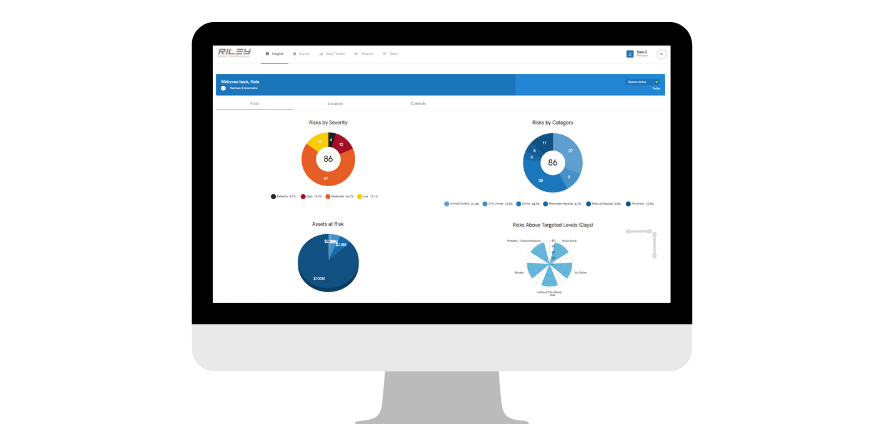
What solutions/services does your business offer in the security industry? And what makes your offerings/company unique?
JA: Riley is an enterprise security risk management platform built specifically for international security management. It’s the only cloud-based subscription service system that helps resource-constrained departments proactively manage safety and security risks, at scale and on a global basis. Riley users are able to easily identify and register relevant risks in the locations where they operate and then collaborate on tasks that implement or maintain control measures the chief security officer (CSO) has uniquely prioritized according to the company’s specific policy. Companies that use Riley have, at their fingertips, unmatched reporting and insight into the totality of their risks and controls according to severity, location, costs and status, including all work in progress across their portfolios of projects or locations. The increased visibility brings a lot of benefits, including greater ownership and accountability for risk management at the project and site levels. The department is then inherently more consistent in its approach and much more capable of ensuring that the limited resources available are being applied where they will have the greatest impact.
What is something we might not know about your company – or something new you are doing in security?
JA: Riley is currently used by client projects in over 80 different countries from Afghanistan to Zimbabwe. Riley saves security managers a lot of time by helping them quickly determine their relevant risks and common controls in use in that geography by other companies, as well as typical tasks that will likely need to be completed. It’s a way for companies who are new to a particular geography to quickly baseline what others are doing as a starting point for how they might operate there and what those costs might be.
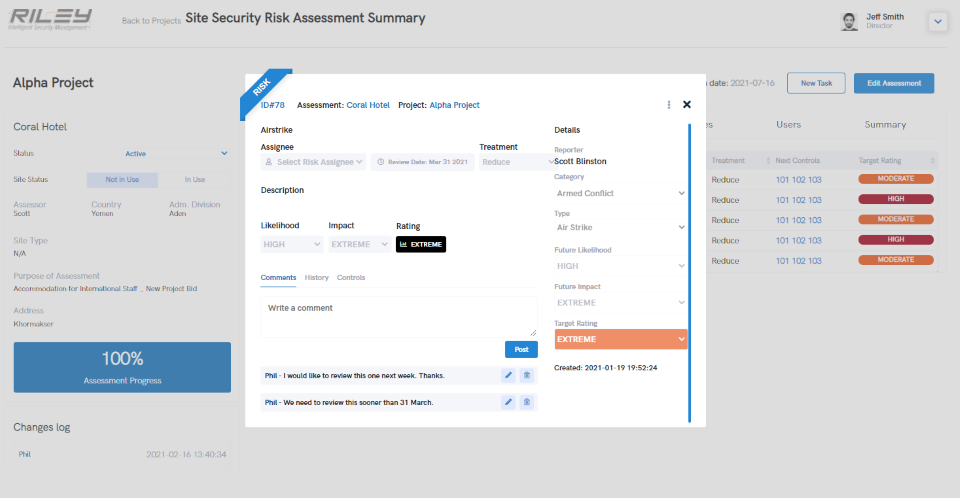
What is your company’s vision, and what are your goals for the security industry?
JA: Our vision is to provide CSOs and their departments with an all-in-one tool that improves decision making through access to better data, information and insight into the value their departments bring to their companies.
What do you think are the biggest opportunities in the security industry right now?
JA: The biggest opportunities in security over the next few years will be in system integration. Systems need to share more data to allow decision makers to have the best possible picture of reality. When information is siloed and not shared, that creates blind spots – this becomes even more true as the lines between physical security, health and safety and cyber or information security are increasingly blurred, because the threats can be interrelated or overlapping. At Riley, we believe there is a huge opportunity to provide teams with increased and improved data to make decisions regarding implementation of controls to address a wide range of risks. .
What are your predictions for the security industry in the short and long term?
JA: In the near term, I believe we will continue to see innovation in technology around solutions to reduce costs for specific problems within a security department. The pandemic has depressed revenues for most companies, and in the near term, security budgets will remain constrained. In the longer term, CSOs will get better tools to quantify their value to companies in ways that move the conversation beyond cost and more about value.
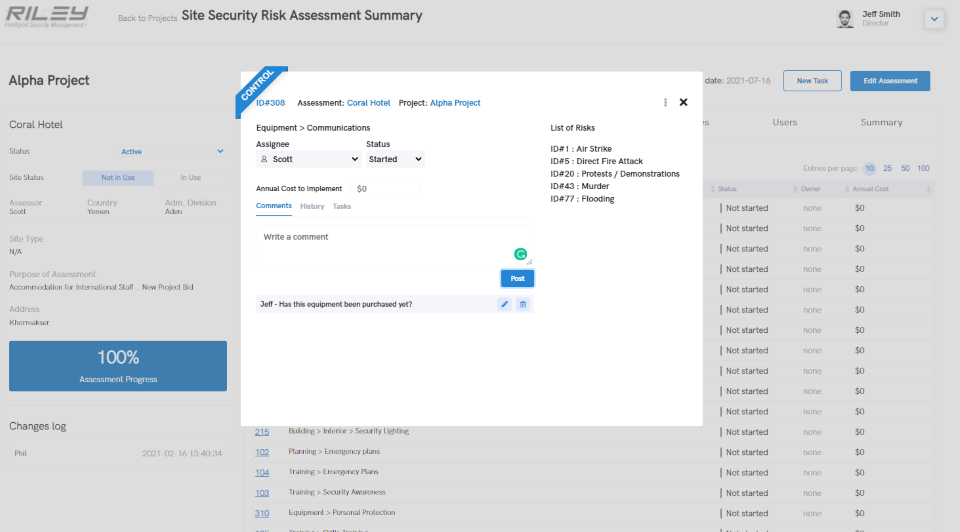
What are the biggest challenges facing your company and/or others in the security industry?
JA: Broadly, one of the biggest challenges is willingness to spend money with so much uncertainty. Decisions that can be postponed most likely will be. As company revenues have been reduced, they often look to cut costs, and security spending is a common place to look for savings. The question, however, shouldn’t always be about cost reduction; it should be about risk reduction. The services or systems that reduce impact or vulnerability the most, at the same price point, offer more inherent value.
What do you enjoy most about being at your company – and in the security industry?
JA: The topic of security is transitioning away from an exclusive focus on guns, gates and guards. There are a lot of forward-thinking people who are innovating and introducing new concepts and technology. It’s an exciting time to be in the industry.
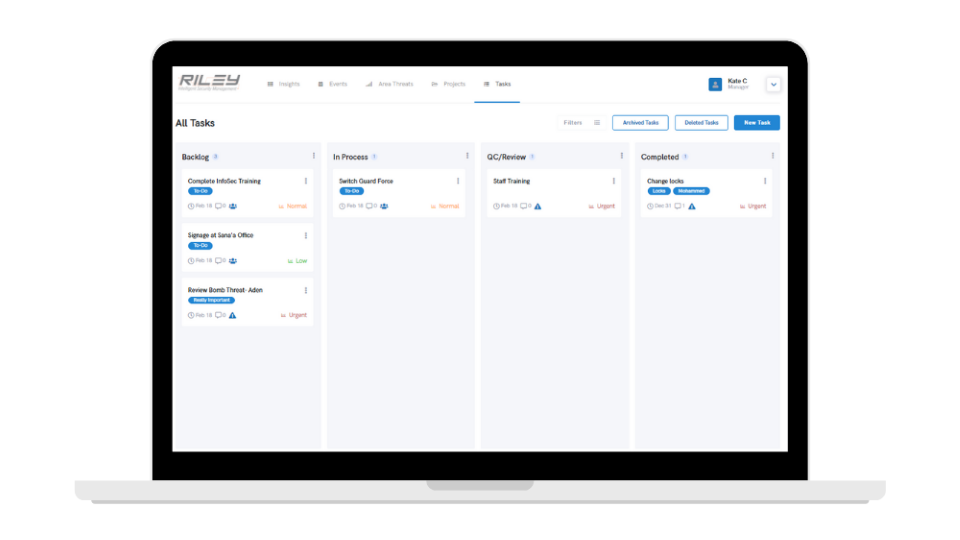
What does SIA offer that is most important to you/your company? And what do you most hope to get out of your membership with SIA?
JA: SIA provides a great opportunity to meet with and learn from leaders within the security industry. There is so much experience within SIA’s membership. It is really fascinating to talk with innovators and practitioners from across the industry and learn about their careers and journeys in the field of security management. Additionally, SIA gives me the opportunity to meet with CSOs, better understand their “blind spots” when it comes to data and information and ensure that the Riley platform is prioritizing those gaps to add value.
The views and opinions expressed in guest posts and/or profiles are those of the authors or sources and do not necessarily reflect the official policy or position of the Security Industry Association.
